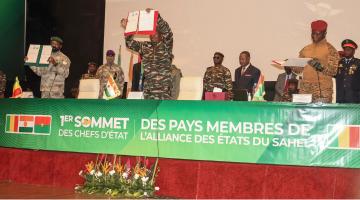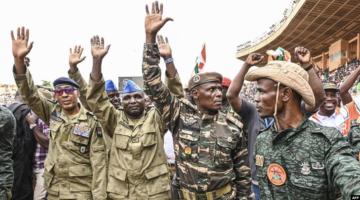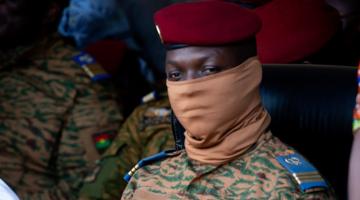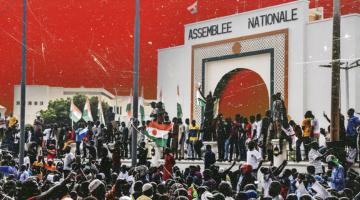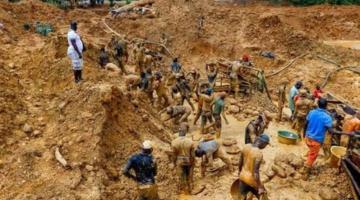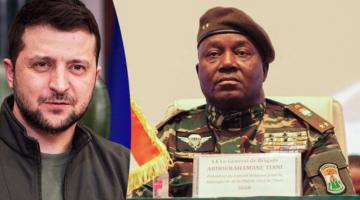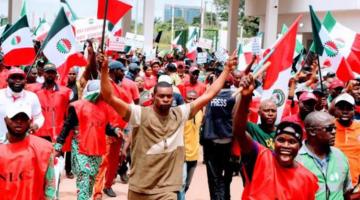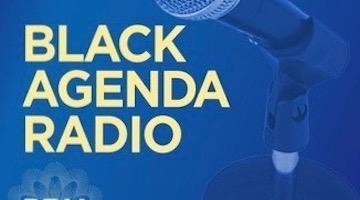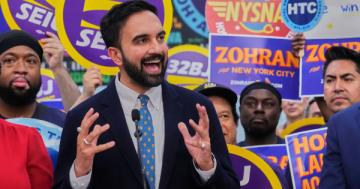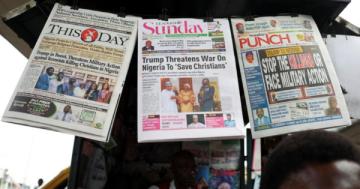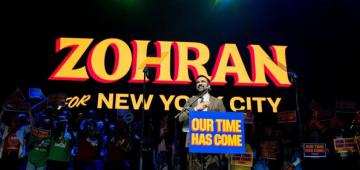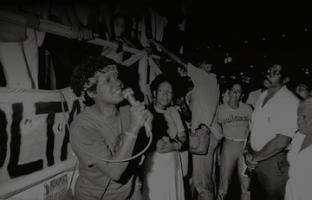The author explains why the Ivory Coast has joined the U.S. plan to take part in a possible ECOWAS invasion of Niger. There is a long history of antagonism between the two states and Ivory Coast is now a reliable partner of the U.S. and France, who seek to influence the region with the help of compliant partners.
There has been long standing tension between the West African countries of Ivory Coast and Niger, although they also have regional trade and cultural ties. The Ivory Coast has in the past exerted a destabilizing impact in Niger as a member of the Economic Community of West African States (ECOWAS). For example, it was one of the primary ECOWAS states supporting the coup that removed the elected Nigerien President Mahamadou Issoufou in 2017 and backed the new administration despite widespread condemnation of the coup.
In addition to its strong backing of the 2017 coup leaders in Niger, the Ivory Coast government has been accused of backing rebel organizations in Burkina Faso and Mali in recent years.
The Ivory Coast's interventions in Niger threaten regional peace and security and go against the stated ideals of ECOWAS in support of “democracy” and “sound governance” among member states. One would think that meddling in the governments of other countries and violating their sovereignty and their people’s will would be defined as undemocratic. The international community should pressure the Ivory Coast to quit meddling in Niger and respect its neighbors' sovereignty.
As a regional prosperous power, the Ivory Coast contributes significantly to ECOWAS and plays an influential role in the organization. Ivory Coast influences regional economic policy by promoting trade agreements, business alliances, and investment plans that advance its interests. It also has substantial and disproportionate diplomatic clout. In comparison, Niger is a relatively weak country. These imbalances have led to conflicts within ECOWAS about decisions and decision-making processes.
A Brief Economic and Political History of the Ivory Coast since Independence
The Ivory Coast gained independence from the French colonial authority in 1960 and experienced an economic boom soon after because it was a leading producer of cocoa, coffee, and timber, among other products. It became one of the most prosperous nations in the region. However, the country’s dependence on the export of a few essential raw materials made it vulnerable to international determination of and changes in the prices of such commodities. The economy was not diversified or independent. The economic downturns of the 1980s and in 2008 highlighted the importance of national economies cultivating economic diversity and resilience to withstand outside shocks from the international capitalist system.
High unemployment rates, especially among young people, have long been a problem in the Ivory Coast, whose population is relatively youthful. Youth unemployment is the result of lack of work opportunities, poor education and training, and lack of economic diversification. Although the informal sector contributes significantly to the economy, most of these positions include neither social benefits nor job security. Such problems continue despite government programs that support entrepreneurship and job development.
The Ivory Coast has encountered significant political difficulties as well since independence. Félix Houphouet-Boigny served as the country's first president in 1960 and remained in power for more than three decades. When he passed in 1993, the country’s political landscape grew more polarized on the basis of regional and ethnic tensions.
In 1999, General Robert Guei led a military takeover that resulted in a lengthy battle for power and culminated in a rebellion in 2002 that divided the country into the rebel-held north and the government-controlled south. President Laurent Gbagbo's hesitation to resign the presidency following a violent argument over the outcome of the 2010 presidential election caused even more unrest. The incumbent president and economist Alassane Dramane Ouattara both claimed victory in the fiercely contested election. International organizations supported using force to remove Gbagbo and decided to acknowledge Ouattara as the rightful president. Political scheming, scandal, and manipulations all played a part in Ouattara's ascent to power as president. He held several posts at the IMF before returning to politics in the Ivory Coast in the 1990s. His eligibility to lead the country was questioned based on the foreign nationality of his parents and thus his own citizenship. His men were accused of violating human rights while attempting to remove Gbagbo from office. Accusations of repression against opposition forces and free media expression have plagued his presidency.
Even though he presented himself as a champion of democracy, Ouattara’s decisions have raised questions about how sincerely he adheres to such values.
Influence of the French on West Africa’s Countries
Both France and the United States are very concerned about the recent coup in Niger. France, which is significantly dependent on nuclear power, acquires 20% of its uranium from Niger, and the US has a large military base in Niger. Additionally, Niger serves as a vital transit country for oil supplies from Nigeria to France and the US. Both countries are keeping a close eye on the coup and using ECOWAS to preserve their strategic interests and prevent potential operational interruptions to their interests.
France has frequently supported dictator governments in West Africa to support its interests. These policies have understandably produced animosity against French dominance among West Africans, as indicated by their support for the recent coups in Burkina Faso, Mali, Chad, and Guinea. For similar reasons, the United States supports France in the region and has continued to provide financial and military backing to repressive governments against the interests and will of the people of West Africa.
The French government has justified its actions in West Africa as a stabilizing force against terrorism and other dangers. Critics counter that France's backing of dictator leaders has only increased instability. They emphasize that the coups in Burkina Faso, Mali, Chad, and Guinea have worsened the problem and that the Sahel now houses some of the deadliest terrorist groups in the world. It is unknown if France will change its approach to dealing with West Africa in the wake of the recent coups. The people of the region have shown they are no longer willing to accept French authority. For example, in recent demonstrations in Niger, the French ambassador’s offices were attacked in an expression of dissatisfaction with its influence in the country.
Destabilizing Niger Through ECOWAS
As a regional power, the Ivory Coast contributes significantly to the Economic Community of West African States (ECOWAS). Although the Ivory Coast's participation in ECOWAS should foster peace, economic progress, and collaboration, its decisions within the group have had complicated repercussions for its neighbor Niger and destabilizing impacts.
The Ivory Coast's significant role within ECOWAS as a reliable and prosperous member has substantial impact on the region and Niger. It influences regional economic policy by promoting trade agreements, business alliances, and investment plans that advance its interests and may promote regional prosperity. However, the discrepancy in economic strength among state members may result in uneven advantages, which would negatively affect nations like Niger. Due to its diplomatic clout, Ivory Coast can speak out on regional issues, but doing so may ignore the needs and viewpoints of other countries, leading to imbalances and conflicts within the ECOWAS decision-making process.
The Ivory Coast has contributed to the destabilization of Niger in at least three major ways:
First, as revenge for Niger's support of China’s Belt and Road Initiative, the Ivory Coast prevented Niger from joining the West African Economic and Monetary Union (WAEMU) in 2020. Its goal was to dissuade Niger from seeking international alliances that would threaten the Ivory Coast's control in the West Africa Sahel region. This blockage has made it more difficult for Niger to receive loans and financial support from foreign organizations, increased its financial fragility, and reduced its ability to withstand external shocks. Additionally, the lack of trade prospects with nearby nations has hampered economic growth and undermined the regional integration objectives that ECOWAS was created to support.
Second, the Ivory Coast's suspected financial and logistical backing of Niger's Movement for the Restoration of Democracy and the State (MRDS) and other opposition organizations since the recent popularly supported coup has sparked internal strife, bloodshed, and instability. In addition to increased violence and evacuations, the externally supported instability in Niger is conducive to the rise of terrorist organizations like Boko Haram and the Islamic State in the Greater Sahara due to these organizations' escalation of violence.
Through the ECOWAS, the opposition in Niger has received assistance and been provided a forum to voice their complaints and win supporters. They demand new elections and accuse the new administration of corruption and poor administration.
Third, Niger has suffered significantly from Ivory Coast's conduct in the ECOWAS Water Resources Coordination Program (EWASCO). Niger is experiencing a financing vacuum due to Ivory Coast's inability to meet its financial responsibilities under the program, which is preventing the completion of crucial water and sanitation infrastructure projects and leading to a deterioration in associated services in Niger. Ivory Coast's resistance to the nomination of a new EWASCO head from Niger has left the program without a strong leader. Without capable leadership, initiatives designed to improve Niger's water resource management, quality, and accessibility are on hold, compounding the nation's problems.
Moreover, the monitoring and assessment procedures for projects in Niger have been compromised by the Ivory Coast's failure to cooperate with the ECOWAS Commission on issues related to EWASCO, including evaluating the results of its work.
Finally, The Ivory Coast has been charged with corruption in the execution of EWASCO projects. In 2018, it was discovered that the Ivorian government had contracted a business with no prior knowledge of water and sanitation with a $10 million EWASCO project. This led to concerns about theft of regional EWASCO funds and the potential that corruption would undermine the efforts of this worthy regional project.
The Role of Ivory Coast in the Current Coup in Niger
Alassane Ouattara, the president of the Ivory Coast, is clearly using ECOWAS to exert influence and maybe destabilize Niger during the unfolding crisis. A comparison between Ouattara's denunciation of the recent coup in Niger and his own prior behavior reveals some ironies and contradictions. When his own nation faced a coup in 1999, he openly supported it. Moreover, he planned a constitutional coup in 2021 by unilaterally changing the Ivory Coast's constitution to circumvent restrictions on the number of legal presidential terms.
To assist an ECOWAS military incursion purportedly intended to reinstate President Mohamed Bazoum to power in Niger, Ouattara is currently seeking to send a sizable detachment of up to 1,100 soldiers.
ECOWAS is being called into question as a neocolonial weapon. Despite widespread popular support for the coup in Niger, and the support of African states like Algeria, it appears that the organization is assembling a "standby force." In their peaceful demonstrations, Nigerien protestors have raised Algerian, Malian, and Burkinabe flags in appreciation of these nations’ positions, which rejected any foreign military intervention in their country.
Ouattara's ties to French culture, apparent readiness to support neocolonial powers, and the historical backdrop of colonization do not reflect well on his leadership. Notably, this is occurring at the same time that many West African states and Africa as a whole are reorienting their economic attention toward Russia and China given the activities of Western countries like France historically and in the present. These activities include hampering regional growth by requiring that money be deposited with the French Central Bank. With the geopolitical changes of the last few years, Africans will be less reliant on the West and can look forward to a more equitable distribution of economic power.
Dr. Abdiwahab Sheikh Abdisamad is a Somali Kenyan and Kenyan citizen. He is the Executive Director of the Institute for Horn of Africa Studies and a specialist in political science, conflict resolution, and rural development.

